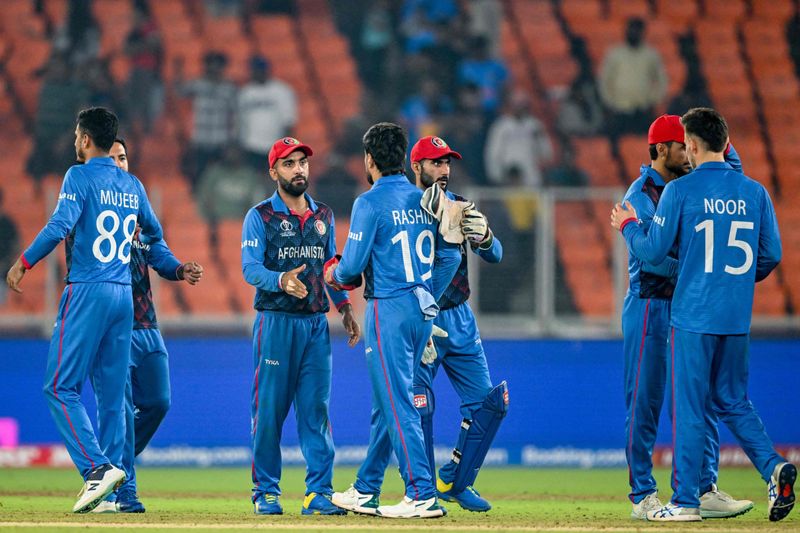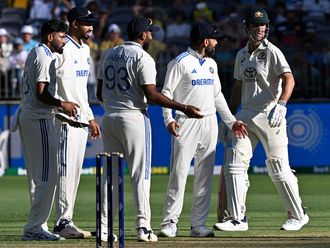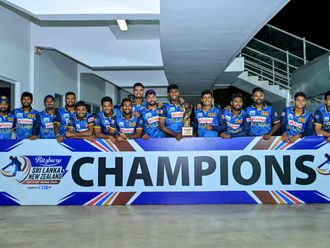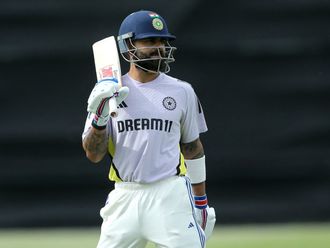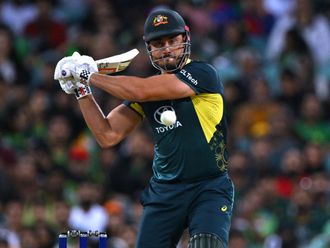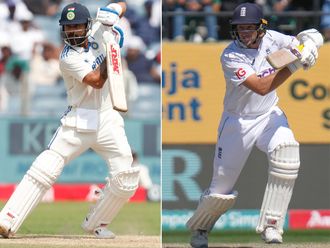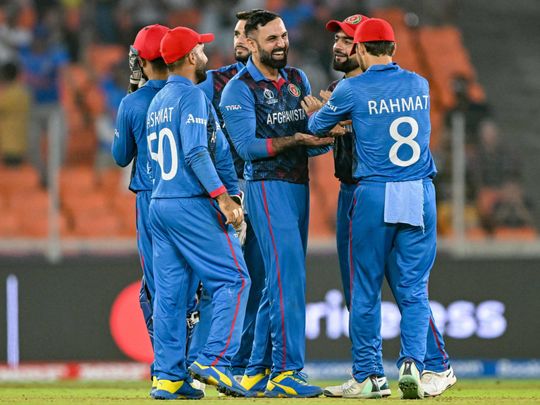
Dubai: Afghanistan were a force to be reckoned with in the Twenty20 format and have the firepower to match the best, but their all-out attacking attitude didn’t suit the One-Day Internationals. Despite gaining the Test status in 2017, Afghanistan were unable to make a mark in the World Cup, losing all their nine matches to finish last in the 2019 World Cup.
But this edition has painted them in a completely different picture. Afghanistan have been producing gallant performances one after the other and fought till the end before losing by five wickets against second-placed South Africa in Ahmedabad on Friday.
Challenging score
Electing to bat, Afghanistan rode on Azmatullah Omarzai’s battling unbeaten 97 to score a challenging 244 in 50 overs. The South Africans’ vulnerability while chasing came in to fore again and the Afghanistan famed spin quartet put the Proteas under pressure.
Rassie van der Dussen’s unbeaten 76 and his unbroken 65-run partnership with Andile Phehlukwayo, who remained 39 not out, took the Proteas home after surviving some nerves midway though their final league match. In-form South African opener Quinton de Kock continued his impressive run to give a brisk start with 41.
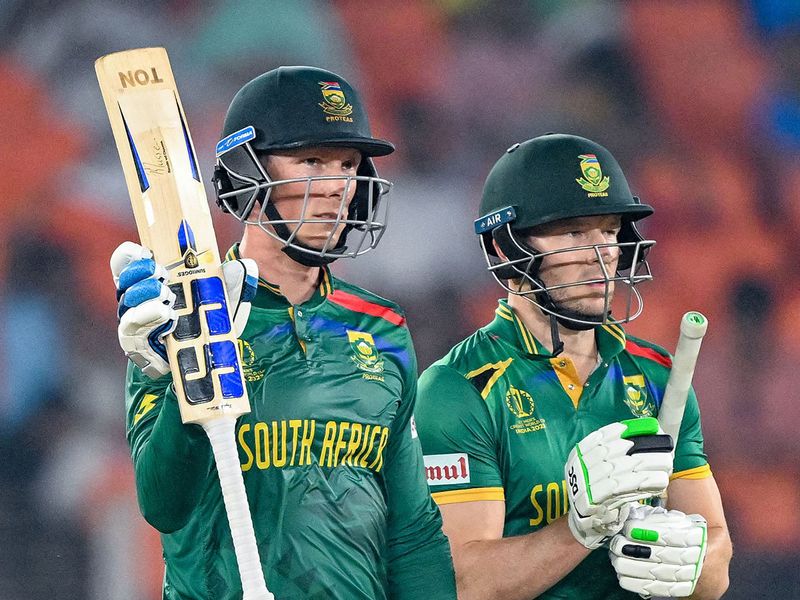
When Afghanistan players landed in India for the World Cup they almost went unnoticed and were non-existent to most fans after a lacklustre performance in the Asian Cup in Sri Lanka. Their loss to Bangladesh in the opener went on the expected lines and were written off completely when they suffered a humiliating eight-wicket thrashing at the hands of hosts India.
But just when the dust was settling down after the most-anticipated match between India and Pakistan in Ahmedabad, Afghanistan caused a stir the next day. Up against the world champions, Afghanistan batters decided to shed their inhibition to score 284, which gave enough ammunition for the famed bowling attack to demolish the England batting and inflict a demoralising loss on Jos Buttler’s world champions.
A new Afghanistan team born
October 15 is the day a new Afghanistan team was born. But in less than a month, the team has made giant strides into world-beaters. How did the transformation happen?
Afghanistan possessed one of the best bowling line-ups in the World Cup. They had four spinners who could turn the match on its head on spin-friendly Indian conditions. Pacer Naveen ul Haq to has the experience of playing for Lucknow Super Giants in the Indian Premier League and knows what to expect from the surface in India. The globetrotting bowlers were able to soak up the pressure, but it was the batting that was repeatedly letting the Afghanistan team down.
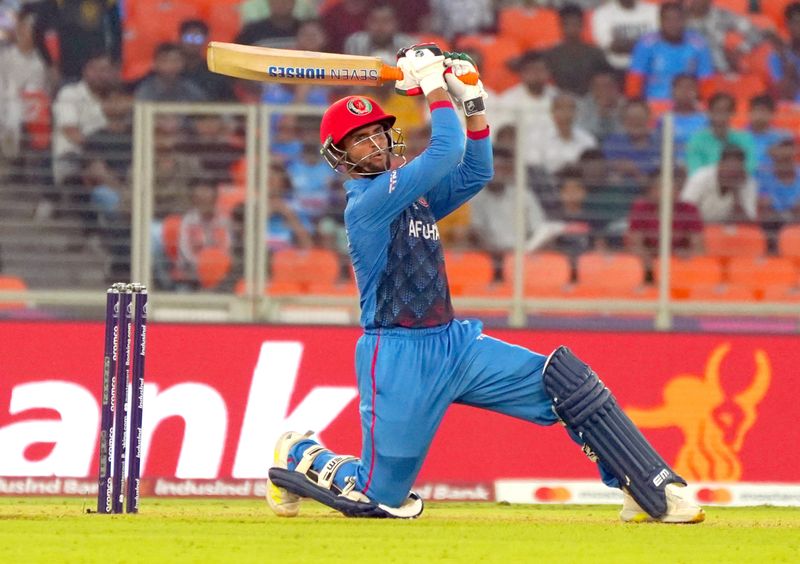
After the success they enjoyed playing the aggressive brand of cricket in Twenty20 cricket, the batters were adopting the same mindset in the 50-over contests, which caused their downfall way too often. ODIs require different skill sets. The batters need to adapt to the situation and should be able to lower their gears when it is required, especially when the field spreads out after the end of the powerplay.
Epic contest
The England match gave the batters the confidence and provided the much-needed experience to change their approach according to the needs of the game. Afghan openers Rahmanullah Gurbaz and Ibrahim Zadran were the key architects of the change. Zadran got better and better with every game and became the first Afghan batter to score a World Cup century, against Australia in an epic contest. Both Zadran and Omarzai are 23 and 21 years old respectively, but they have showed great composure and consistency that belied their age and showed that they have a firm head on the young shoulders.
But in between Afghanistan had beaten Pakistan and Sri Lanka, the two former champions, and grew in stature as giant-killers after chasing down targets with ease. The win against Pakistan must have been special as it was in Pakistan that Afghanistan team first started playing in their domestic league, participating in the second division of the Quaid-e-Azam Trophy in 2001-02 season.
In subsequent years, Afghanistan started playing in Asian regional tournaments and tasted success in 2006 when they finished runners-up to Bahrain in Middle East Cup. They first won the title when finishing joint winners with Oman in the ACC Twenty20 Trophy.
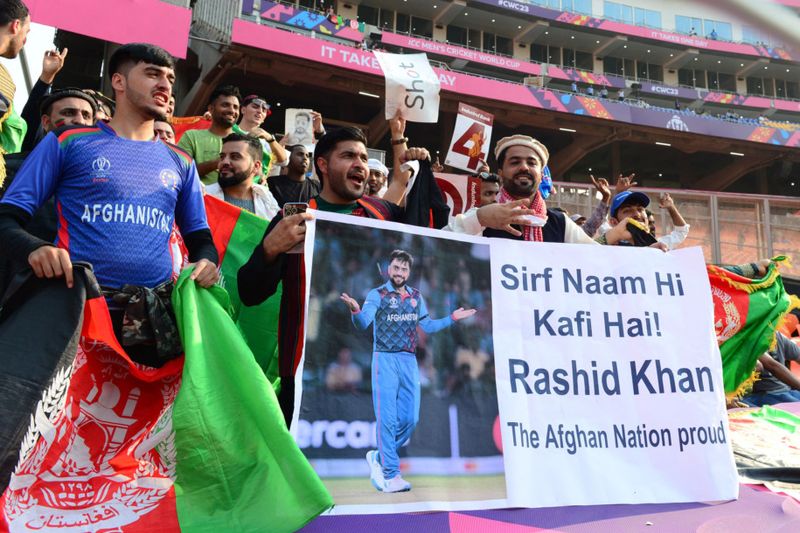
UAE had played a big part in the development of the Afghanistan team. Afghanistan clinched their big title defeating hosts UAE in the final to win ACC Twenty20 trophy and subsequently created history when, as an affiliate nation, they defeated Test-playing Pakistan in their first One-Day International at Sharjah Stadium, which was their home ground for long.
Catching is an issue
Afghanistan’s lone win came in the 2015 World Cup against Scotland, but buoyed by the success against England, Afghanistan scored three more wins. They could have even defeated 2019 finalists New Zealand in Chennai, but five dropped chances let the Black Caps off the hook and allowed the Black Caps to win with ease.
Afghanistan head coach Jonathan Trott was unhappy with the fielding standards. “I would say that it’s not the pressure. I think it’s been happening a bit too much recently as well since I’ve been in charge. So, if you look at the statistics, unfortunately the side is right at the bottom with regards to catching. So that needs to improve and I think it’s something we’ve worked really hard on in training we just need to do it in games now,” said the former England batter.
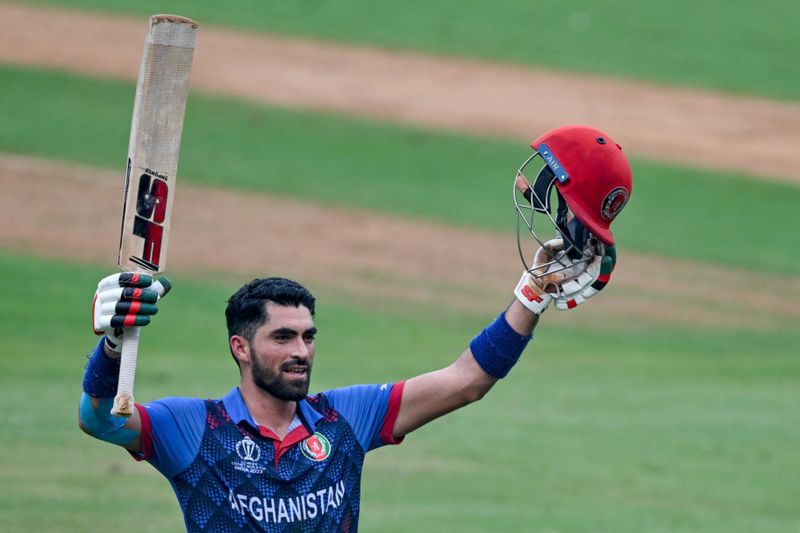
A big moment came against Australia, when, after scoring 291 for five, had the five-time world champions on the ropes at 91 for 7. But a stunning, unbeaten double century by Glenn Maxwell halted their march into the semifinals.
Afghanistan might not have won the cup after failing to qualify for the semifinals. They could end up in fifth of sixth spot on the points table, depending on Pakistan’s game against England in Kolkata on Saturday. But the Hashmatullah Shahidi-led team have won many hearts across their world with their stunning run, which was similar to the title-winning dream run of India in 1983. The Kapil Dev-led squad had several big scalps en route to their maiden World Cup title, including the two-time champions West Indies in the final.
Since India’s consistent run, the 50-over World Cup has not witnessed such a performance from a rank outsider, like the one by Afghanistan in this edition. Their entry could have been mute one, but they will leave the Indian shores with a loud and clear message that they are no longer the minnows of Asian cricket, but a firm title contenders.
